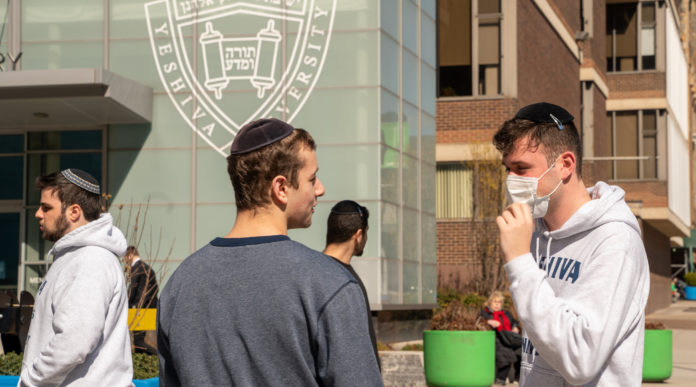
NEW YORK (JTA) — Yeshiva University is planning to eliminate its in-person Hebrew courses indefinitely, making what was at first a pandemic-induced measure a permanent one.
The change was first reported by the YU Commentator, one of the university’s student newspapers.
The new Hebrew courses will be asynchronous, meaning students will not interact in real time with a teacher, and will be offered starting in fall 2022. Nearly all students at Yeshiva University are required to take at least one Hebrew course during their studies.
The decision comes after Yeshiva College, the university’s men’s college, dissolved its Jewish Studies department in January, reassigning its professors to other departments.
Selma Botman, Yeshiva University’s provost and vice president for academic affairs, said the change to the Hebrew curriculum came in response to student feedback and offered greater flexibility for students with busy course schedules.
But Lori Linzer, a Hebrew professor at the school, said the move would lower the quality of Hebrew language instruction at Y.U.
“I don’t think you will be able to find anyone who can credibly argue that the asynchronous model is a better model for teaching Hebrew language. I’m just sad that we have reached the point at which this fact is beside the point,” Linzer told the Commentator.
While some students relished the flexibility offered by the asynchronous classes, others like Zach Ottenstein were dismayed.
“My worst fear when Y.U. began offering asynchronous courses during the pandemic is that they wouldn’t end when the pandemic did,” Ottenstein said.
As reported by Vos Iz Neias
